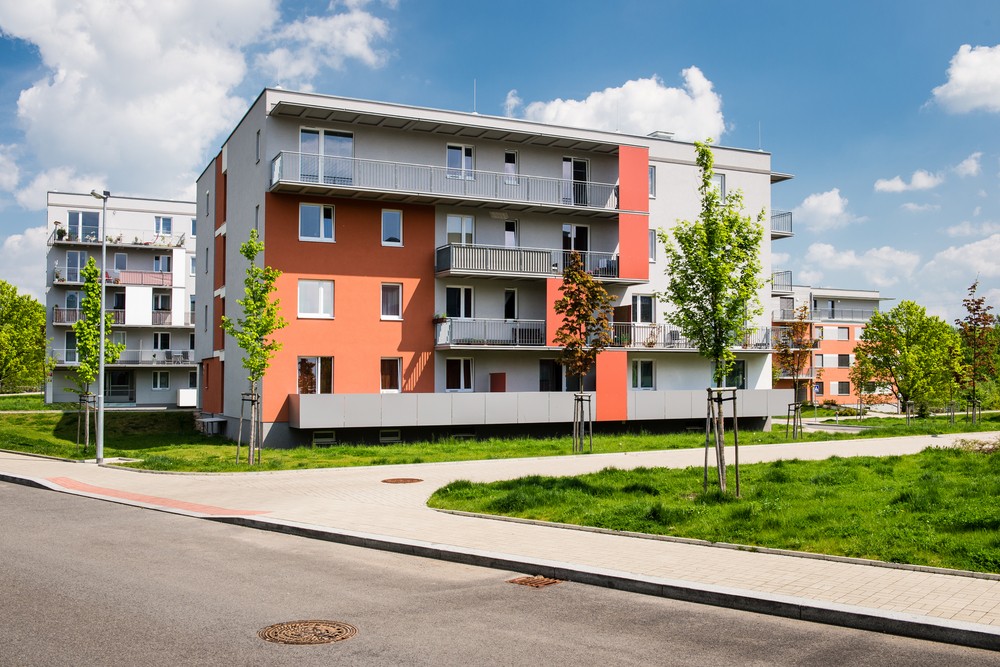The first quarter witnessed a notable decline of 6% in prices for new apartments compared to the previous year in the Czech Republic. Due to the increased costs of construction, real estate in the country is now being sold at a 15% discount.
This swift decline in apartment prices is a positive development for individuals who have been unable to afford housing and have been facing homelessness. However, cautionary tales from various parts of the world warn that this could potentially signal the onset of a new economic crisis.
The construction industry is declining. Recent data from the Czech Statistical Office reveals that while new apartment prices fell by 6% in absolute terms during the first quarter, when factoring in the rise in construction costs, the drop in apartment prices amounts to 15%. This is an unprecedented occurrence in the Czech Republic since the turn of the century.
Equally unprecedented is the concerning news of the declining construction activity. During the first four months, authorities issued one-third fewer new housing permits compared to the same period in 2022.
Pavel Sobiszek from UniCredit Bank affirms that certain developers have delayed construction projects due to the rise in interest rates from 0 to 7 percent, which was implemented by the Czech National Bank last year. He notes that the lower prices naturally limit investors’ inclination to build new structures. However, he assures that this is not a crisis and expects housing construction to resume growth no later than early next year.
Creditas’ Peter Dufek even identifies a positive aspect in the housing market decline. Unlike the record-breaking price hikes for building materials experienced at the beginning of 2021 and 2022, the current construction downturn may help steer material prices in a more favorable direction.
The cautionary tale from Sweden serves as a reminder that if the housing market conditions fail to improve, Czech Republic may face similar consequences. After years of exceptionally low borrowing costs, the combination of the pandemic and the conflict in Ukraine has resulted in high inflation and rapidly rising interest rates in several countries. In Sweden, these structural issues in the housing market have intensified the effects, leading to an 11% decrease in home prices last year. Consequently, the construction and banking sectors experienced a downturn, with banks demanding more reliable guarantees from lenders.
The Czech Republic faced a recession in the latter half of the previous year. However, the anticipated recovery has yet to materialize, and the economy has stagnated. The construction sector has been particularly affected, declining more than any other sector compared to the previous year. April data from the Czech Statistical Office further suggest a deteriorating situation in the construction sector, even below the levels of 2019.
Despite these challenges, experts emphasize that the threats to the overall domestic economy should not be overstated. Peter Dufek highlights that the domestic construction sector’s contribution to the total economic output is smaller in comparison to Sweden, accounting for approximately 4-5%. He and his colleague Pavel Sobišek agree that the crisis will likely be confined to the housing sector. Private investment shortcomings in housing may be mitigated by investments in infrastructure such as roads and railroads, financed through the European Reconstruction Fund.
Although statistics indicate a decline in the construction of transport infrastructure at the beginning of the year, alongside housing construction, this setback is temporary. Municipalities are postponing investments due to uncertain public finance outlooks, but the funds will eventually be utilized. Major public investors, including the Roads and Highways Authority, are revising contract prices due to inflation.
It is uncertain whether the domestic housing market harbors deep-seated “structural problems” akin to those in Sweden. However, it is true that both countries are experiencing faster rising housing prices compared to wages. Apartments have transitioned from being merely residential spaces to investment commodities, thanks to the elimination of the real estate transfer tax. Moreover, both countries are grappling with a shortage of rental housing. Nevertheless, Czech households still possess financial reserves, with outstanding mortgages amounting to 70% of their disposable annual income. Swedes, on the other hand, owe more than they earn or receive from the government in a year.
Reports of the declining housing market in Sweden have garnered attention worldwide. Erik Selin, the owner of real estate development firm Fastighets AB Balder, highlighted the lack of incentives to invest heavily in construction. His firm has refrained from initiating any new projects for over a year. Nevertheless, he does not view the current situation as a crisis and anticipates Swedes to catch up with the pent-up demand. A further 5% to 10% reduction in prices this year would not be as dramatic for them, according to Selin.
Central Group, the largest real estate developer in the Czech Republic, has also encountered difficulties in recent months. Investors have responded to the crisis by halting or postponing ongoing projects. In the fall of last year, the company announced the delay of construction and sales of over 700 new apartments. However, unlike their Swedish counterparts, Central Group is now recommencing large-scale construction as they observe signs of recovery in the housing market.
Thus, it is hoped that the Czech Republic will not follow the Swedish scenario of an economic downturn caused by structural issues in the housing market.
Source: seznamzpravy.cz


















